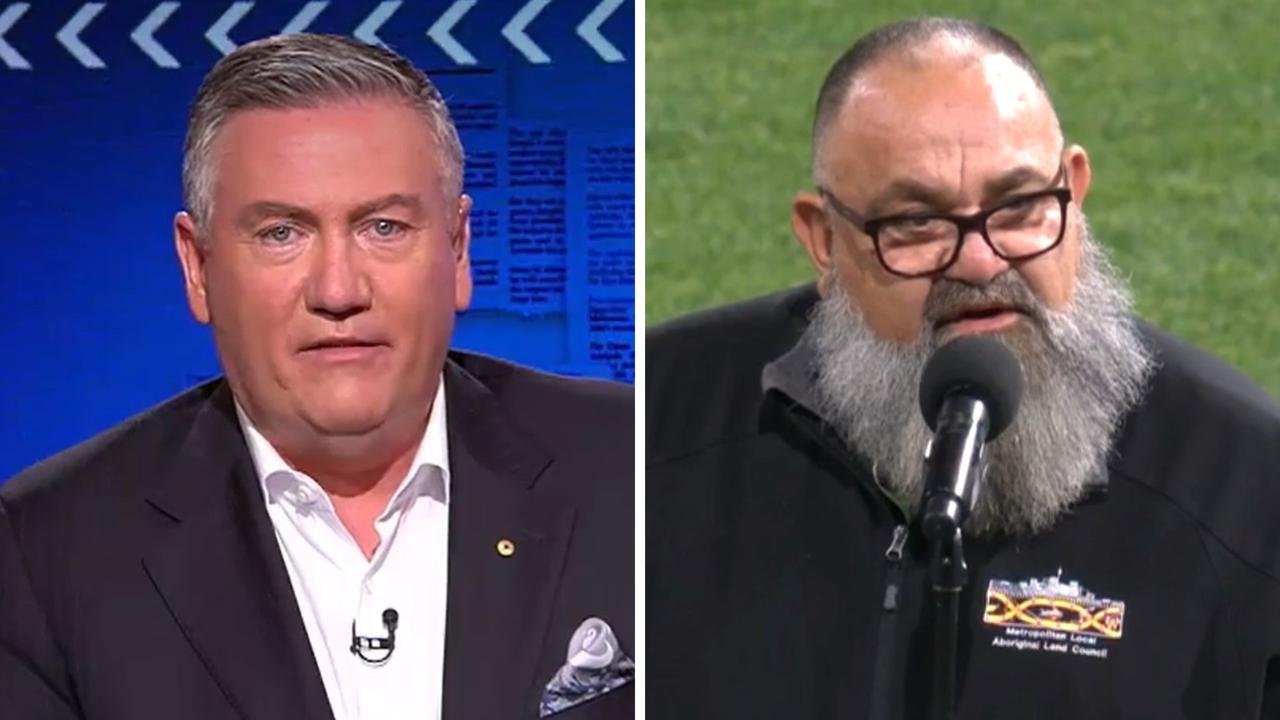Graham Cornes remembers his mentor, SA footy legend Neil ‘Knuckles’ Kerley
An old photo of Neil Kerley depicts a sadness behind the eyes of SA footy’s toughest man. Graham Cornes remembers his mentor, revealing, at 88, ‘Knuckles’ was still cutting his own wood.
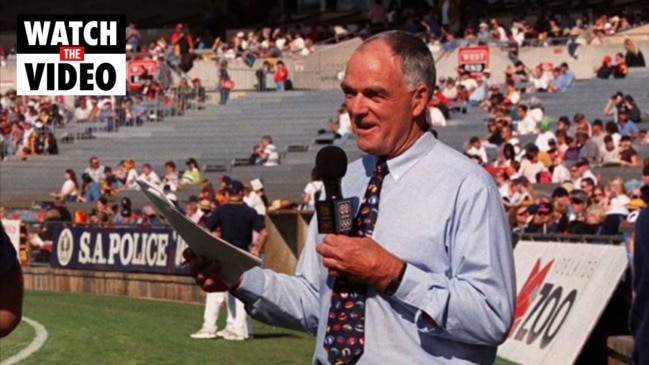
AFL
Don't miss out on the headlines from AFL. Followed categories will be added to My News.
There is a photograph of Neil Kerley that is particularly haunting. He’s a young boy staring sullenly at the camera. It’s the sadness in his eyes that the viewer can’t ignore.
What was it in his childhood? His father, Laurie, who had fought in World War II, succumbed to his war injuries and died when “Kerls” was but a boy, leaving his mother, Lillian, to raise six kids.
He couldn’t go to his father’s funeral. The second oldest in the family, he stayed home to mind the younger ones while his mother and big brother Mick attended the funeral.
He was 11. Was it a lack of closure? His childhood was tough, helping his mother eke out a living on a small vegetable and fruit block at Loveday, near Barmera, on the River Murray.
Kerls left school at 14, and then left home for good at 16 – but the River Murray always drew him back. He has always known how to work hard. At 88, he was still collecting and cutting his own firewood when he passed.
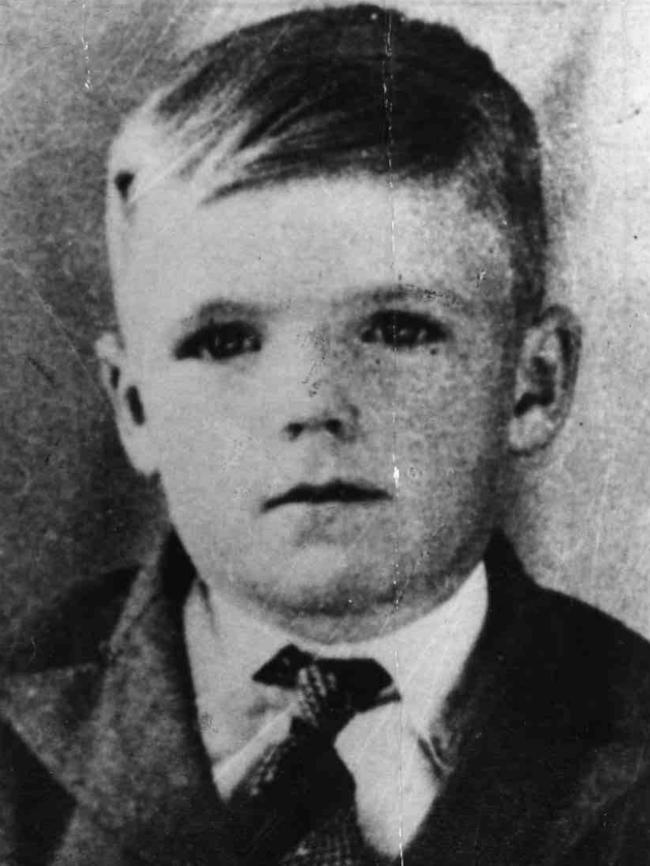
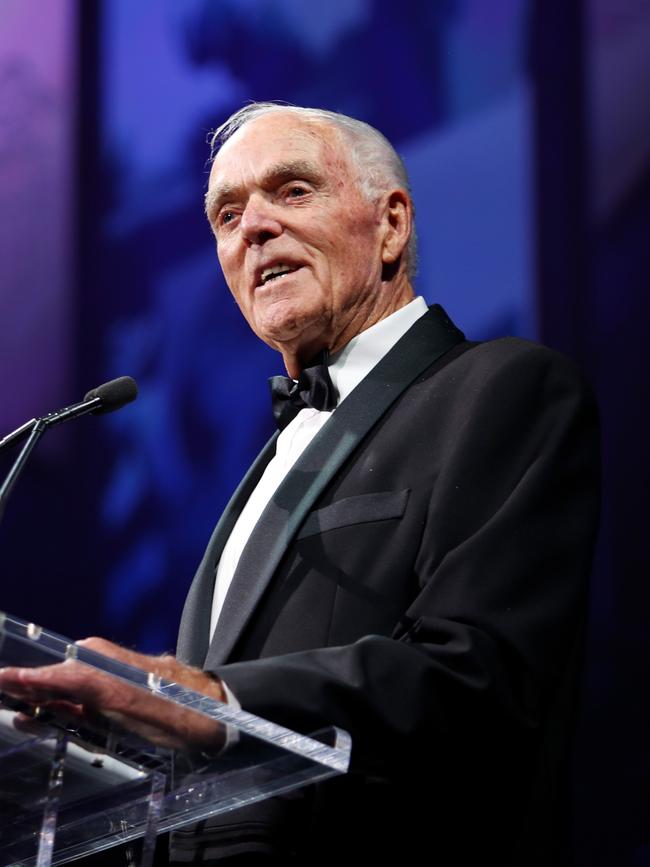
We spoke often about his upbringing and his childhood, and I often wondered about his school years. He was a smart man but not highly educated. One of his many sayings – his pearls of wisdom, if you like – reflected a disdain for male schoolteachers.
“Teachers – men amongst boys; boys amongst men”, he would say disrespectfully.
Watch every blockbuster AFL match this weekend Live & Ad-Break Free In-Play on Kayo. New to Kayo? Start your free trial now >
We argued about that – there are so many great teachers and friends who were teachers. Had the Catholic system in which he was raised let him down, or was school simply not for him?
Was it a resentment of authority? He was always tough on any self-important club and league officials. In a metaphorical sense, he hated umpires, particularly Victorian umpires. And he was always in conflict with Fisheries and Wildlife officers, who thwarted his intentions to net too many yabbies, catch too many fish or shoot too many ducks out of season. He possessed the instincts of a hunter/gatherer who could live off the land and feed his family.
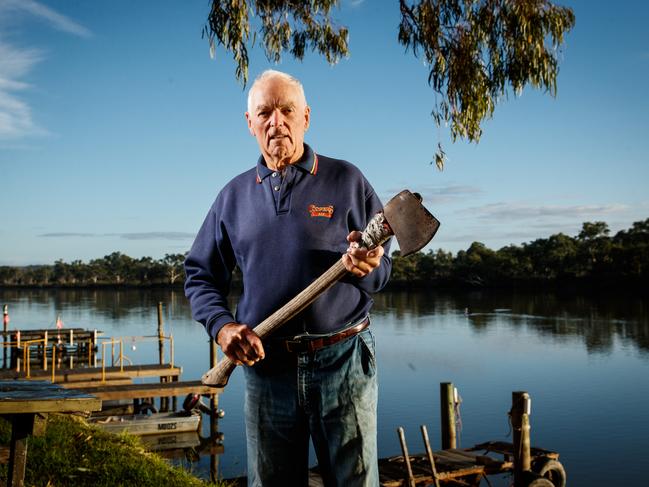
Remarkably, whatever psychological scars he bore from those early years, he was the most positive, optimistic man you could meet.
His life was characterised by a boundless energy and a quest for the next adventure, the next game of tennis (before his knees went), the next game of golf, the next fish to catch, the next football discussion, the next game of cribbage. But he always had to be the leader. He was always in charge and always made the rules.
His football years and successes have been well documented. He coached Koolymilka, which was nothing more than a bush camp near Woomera, when he was only 19. Then he coached that famous team in the prison bar jumper, North Whyalla, to successive premierships when he was but 20 and 21.
A life-defining football journey had begun.
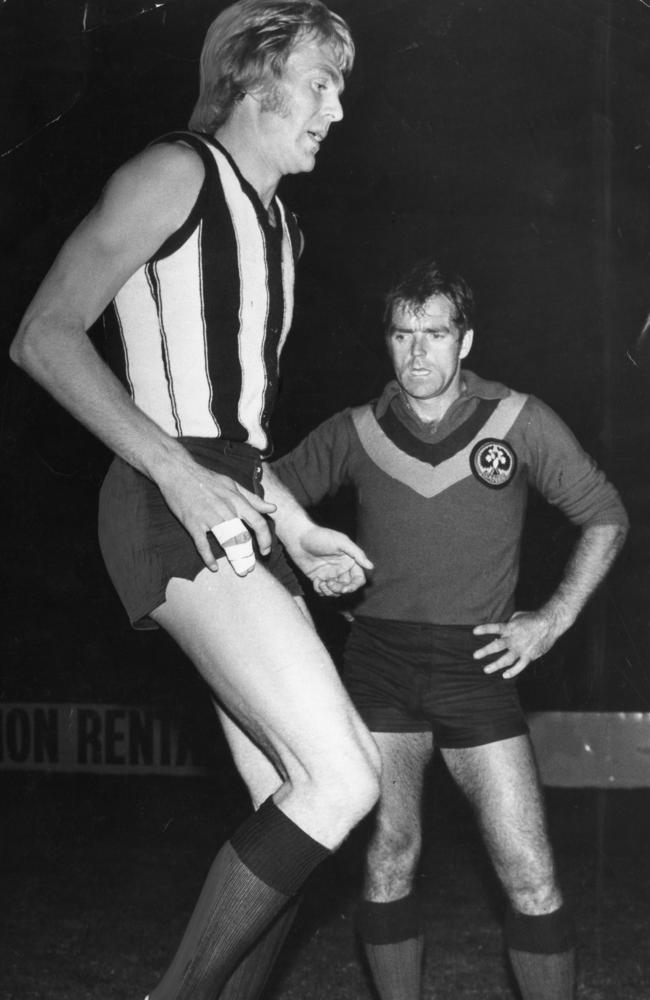
Whyalla was good to Kerls. It was from there that he was recruited to play for West Adelaide but, more importantly, it was where he met his wife, Barbara. They were married in 1955.
Barb was the devoted wife and partner for those 67 years, and her influence off the ground in the friendships she developed with players’ wives, as well as a keenly honed instinct for the game and relationships, complemented and enhanced Kerls’ coaching life.
He was a tough coach, and he would make no apology for that. He had played under the great Jack Oatey, so he understood the concept of skill, but his coaching philosophy was honed around his physical and mental toughness.
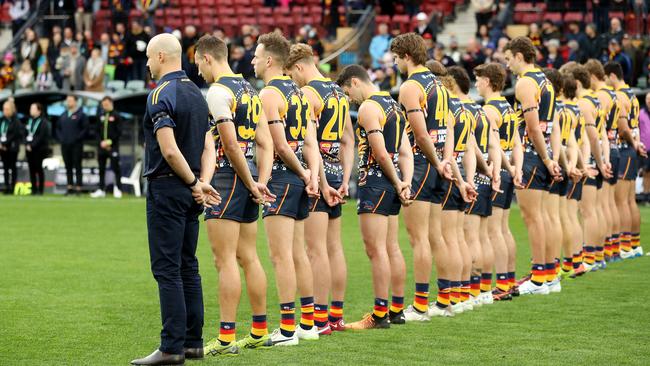
It’s no secret that he led by example – and he expected you to follow. “Never let ’em know you’re hurt”, he would roar. In his whole playing career, he was never taken from the ground injured.
The legendary story of the broken jaw being held together at halftime by the handful of Juicy Fruit chewing gum masticated by Glenelg great Laurie Rosewarne is true – I was there.
He played the second half but did miss the next six weeks, his upper and lower jaw wired together and only able only to drink liquids through a straw. It was towards the end of his playing career, but he came back. Toughness was non-negotiable.
Kerls was old school from a time when masculinity was defined by physical toughness, stoicism in the face of adversity and having a drink with mates. At times, that toughness could seem unnecessarily harsh.
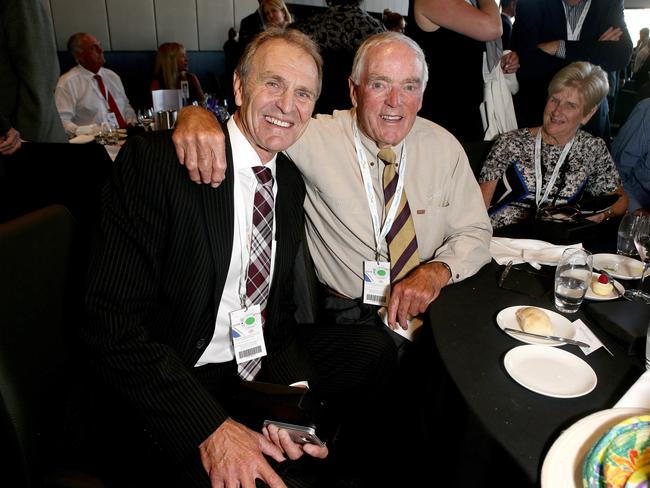
A player carrying his baby or a toddler into the ground on match-day was an indication of softness. He pulled up at a set of traffic lights one day alongside a car driven by one of his players and was horrified to see a small fluffy dog nestled on the player’s shoulder. That player didn’t play too many more games.
He could only shake his head and voice his disgust at the concept of the new-age sensitive footballer who has eschewed toxic masculinity and needs to be mollycoddled by his coach and a battery of sports scientists and psychologists.
He was the coach, sports scientist and psychologist rolled into one, his qualifications acquired from the university of life. However, he was never a cruel coach.
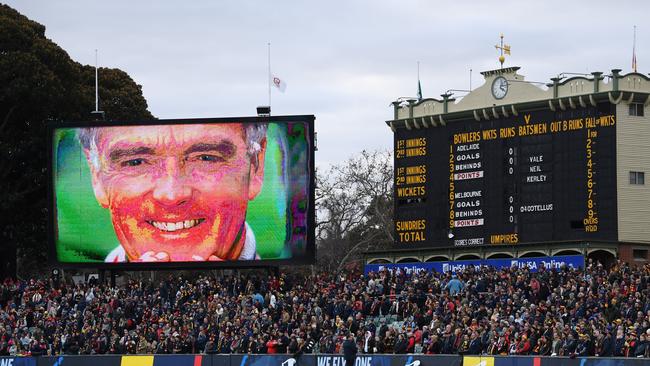
He was critical when he needed to be, and he picked the players who could handle a “blast” from the coach. However, he didn’t belittle them, unlike Victorian legend Ron Barassi to whom he is often compared.
They shared similar backgrounds. Both were sons of servicemen. Barassi’s father was killed in action overseas; Kerls’ father died in 1945 as the war was ending. Both were Legacy wards.
They played similar positions on the ground and were successful playing coaches.
Both were tough and uncompromising, but there was an element of compassion within Kerls that endeared him to his players. Rosewarne reflected the emotions of so many past players. “I loved him. I absolutely loved him,’ he said wistfully yesterday.
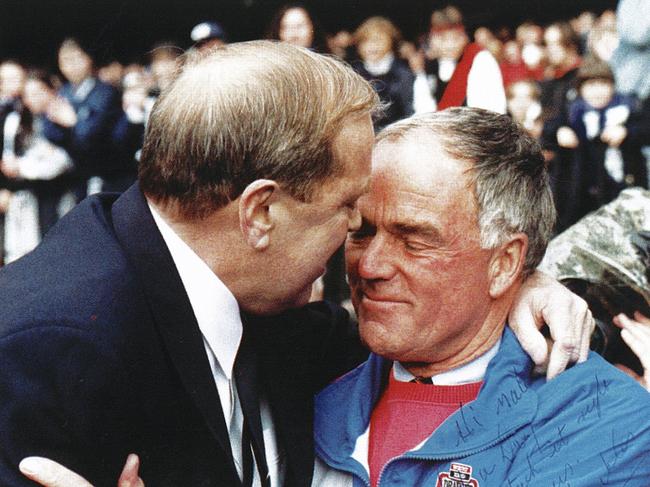
His great mate and rival, the fun-loving and mischievous Ted Whitten, another Victorian legend, was more of a kindred spirit.
Both Whitten and Barassi are Legends in the Australian Football Hall of Fame. It is an injustice that Kerls was not accorded that same honour before he left us.
The initial Victorian bias of selection, a strict quota system and several equally deserving South Australians denied him the honour.
It is a wrong that one day must be righted.
Another of Kerls’ favourite sayings was “I’m here for a good time, not a long time”. He not only lived that mantra, he also shared it with those of us to whom he gave opportunities that changed our lives.
Given the torture he put his body through and the several lucky escapes he had with injury and illness, 88 years could be considered “a long time”.
He would be satisfied with what he achieved in that lifetime. But we wanted more …
***Neil Kerley was Graham Cornes’ lifelong mentor, coaching him for 10 years at Glenelg and in five grand finals including the 1973 SANFL premiership
More Coverage
Originally published as Graham Cornes remembers his mentor, SA footy legend Neil ‘Knuckles’ Kerley




